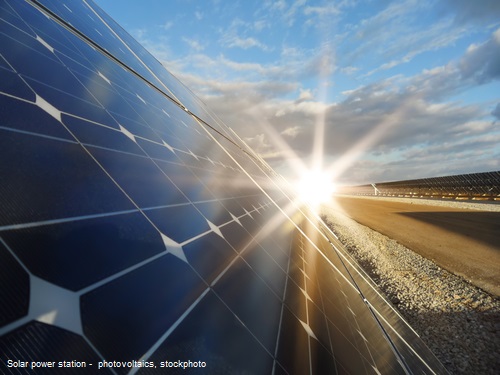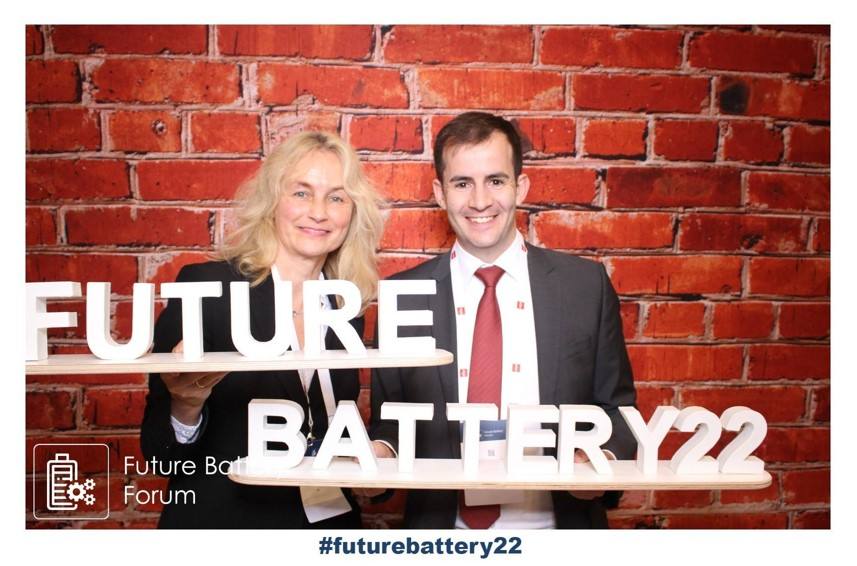Update of the Automotive Standard for Radio Interference Characteristics GB 14023-2011 to GB 14023-2022
According to the announcement of the General Administration of Standards No. 15 of 2022, SAMR has recently approved three mandatory Chinese standards. Among them, the amendment to GB Standard GB 14023-2022 (Vehicles, boats and internal combustion engines – Radio interference characteristics – Limits and measurement methods for the protection of off-board receivers), was also announced. This amendment is particularly important for electric vehicle manufacturers, as all electric vehicles sold in China have to be tested for electromagnetic radiation and must meet the test criteria. The limits set in this standard are designed to protect broadcast receivers used in residential areas in the frequency range of 30 MHz to 1000 MHz.

The document applies to sources of electromagnetic emissions that may cause interference to broadcast reception. Such emission sources are:
(a) Vehicles powered by internal combustion engines, electric drives, or a combination of both.
(b) Boats powered by internal combustion engines, electric propulsion, or both, measured in the same manner as vehicles, unless their special characteristics are specified in the standard.
(c) Units equipped with internal combustion engines or energy cells. To determine the applicability of the standard, refer to the flowchart in Appendix G..
The new version of the standard supersedes GB 14023-2011 and will come into force on 01.11.2023.
For more information on how CCC certification, the CCC Self-Declaration and voluntary CCAP or CQC certification may affect your company, or for more information about CCC certification in general, the process, and the associated costs, please visit our website and our News Section where you will find current updates twice a week.
Please do not hesitate to contact us for further details and consultation. You can contact us via e-mail, or call us (UK: +44 2071931135, Europe: +49 69 2713769150, US: +1 773 654-2673).
Please don’t hesitate to also use our chat-window in the bottom right corner if you have any questions. (Please check your browser settings if you can’t see the window)
You can also check out our free CCC-Brochure, which can be downloaded right here as a PDF file
Expansion of CCC Catalog to Include Batteries, Adapters and Chargers
In announcement 31 from September 23, 2022 the General Office of the State Council proclaimed that the government has set several new guiding principles and opinions to further support the expansion, innovation, approval and supervision in the field of electric mobility, including a planned optimization of the administrative system for access to electric and electronic products. As part of the innovations, two new types of products are to be added to the catalog of products subject to CCC for this purpose:
- Lithium-ion batteries and battery packs, as well as mobile power supplies used in electronic and electrical products
- Power adapters/chargers for telecommunications terminals.
Implementing regulations for CCC certification have not yet been published by CNCA/SAMR yet. We will be happy to inform you as soon as the regulations have been published.
According to the current announcement, batteries to be used in electric vehicles in China are not yet included in the CCC catalog. Nevertheless, these must meet various GB standards and be registered with the MIIT. Voluntary CQC certification can be obtained to demonstrate compliance with the safety requirements.
For more information on how CCC certification, battery registration for batteries to be used in electric vehicles, or other certifications could impact your business, visit our website and news section.
You can contact us via email or give us a call:
UK: +44 2071931135
Europe: +49 69 2713769150
US: +1 773 654-2673
You can also check out our free CCC-Brochure, which can be downloaded here.
China’s solar energy investment increased in the period from January to July 2022
China’s major energy suppliers observed an increase in solar energy investment in the first seven months of the current year. This is according to official data from the National Energy Administration. For example, investments between January and July rose 304 percent year-on-year to $11.4 billion, the agency reported. Overall, the entire power generation sector saw an increase in investments. The increase here was 16.8 percent year-on-year, with the total amounting to the equivalent of $36 billion. Investments in the power grid increased by 10.4 percent year-on-year to around US$31 billion, according to the National Energy Administration’s surveys. By the end of July 2022, China’s total power generation capacity was about 2.46 billion kilowatts, the authority said. This represents an eight percent increase from 2021. Machinery and components in the power generation sector must usually be awarded a CCC certificate in order for the products to be exported to China or manufactured locally.

CCC certification is a complex project that requires professional supervision at all stages. For more information on how CCC certification, the CCC Self-Declaration and voluntary CCAP or CQC certification may affect your company, or for more information about CCC certification in general, please visit our website and our News Section.
Please do not hesitate to contact us for further details and consultation. You can contact us via e-mail, or call us (UK: +44 2071931135, Europe: +49 69 2713769150, US: +1 773 654-2673).
Please don’t hesitate to also use our chat-window in the bottom right corner if you have any questions. (Please check your browser settings if you can’t see the window)
You can also check out our free CCC-Brochure, which can be downloaded right here as a PDF file.
Here you can download our brochure about the CCC Self-Declaration.
Here you can download our brochure about the voluntary CCAP or CQC certification.
MPR at the Expert Forum Future Battery 2022 on November 3rd and 4th in Berlin
For the third year in a row, experts in battery solutions from industry and academia came together at Future Battery to talk about the latest issues that are upcoming in battery applications and to participate in various workshops. This year the topic was “Next level: Establishing the battery society”, highlighting five strategic future topics on the role of battery technology for industry and society. Aspects of material and component supply, production scaling, regulatory requirements and sustainability issues such as recyclability or raw material optimization were the focus.

This year, the Future Battery conference was held as a hybrid event at the EstrelConferenceCenter (ECC) Berlin and online with a supporting app. With 80 exhibition booths, visitors could explore the new ideas and technologies of the participating companies on site and obtain valuable information about products and developments. A very agile event format that brought together about 500 participants directly and another 2,500 participants online. This brought together automotive OEMs, manufacturers of battery systems and cells, and their suppliers, so that the complete value-added spectrum of battery technology could be included.
It was a lively and exciting exchange with a view far into the future to technological leaps that are already emerging today. For MPR International there were many insights to current and future opportunities. The massive increase in demand for batteries themselves in the field of e-mobility, as well as the demand for battery testing and approval oand/or registration in countries around the world has increased enormously. For MPR International this means that we have significantly increased our testing capacities therough our partner network. We have been receiving requests for testing from manufacturers who can no longer keep up with their test capacities. We are now able to offer extensive testing in Germany, other EU countries, the UK and the USA for battery testing at short notice and to carry out any necessary certifications. For China this includes the CCC certification of batteries which will soon be mandatory, as well as battery system registration for automotive batteries.
CNCA and SAMR confirm the adjustment of the CCC catalog and implementing regulations
On September 17, 2022, the General Office of the State Council of the PRC issued a new announcement on the adjustment and simplification of the CCC Catalog. Lithium-ion batteries and power supplies/chargers with high safety risks will be included in the compulsory certification management (CCC) certification, while the formerly compulsory CCC will no longer be implemented for 9 product categories such as data terminals, multimedia terminals audio power amplifiers and others with low safety risks and more mature technology (see article: Adjustment of the CCC catalog regarding Li-ion batteries, power supplies and other products).
Until now, most information technology devices required CCC certification in China. The announcement of the simplification of regulations is divided into four sections:
- 9 types of electronic products that are considered very low risk will not require CCC in the future.
- the corresponding products will be removed from the implementing regulations CNCA-C08-01:2014 and CNCA-C16-01:2014. Implementing rule CNCA-C19-01:2014 will be removed in its entirety.
- the scope will be adjusted by the authority and laboratories.
- the competent authority will refrain from certifications of the affected products in the future.
This information is made according to announcement No. 34, 2022 of SAMR (State Administration for Market Regulation) and announcement of CNCA (Certification and Accreditation Administration) on Oct. 11, 2022.
Thus, the new CCC catalog is effective immediately.
Products removed from the CCC catalog (9 types):
- active loudspeaker systems with one or more loudspeakers with a maximum output power below 500 W (R.M.S.) (Category No.: 0801, CNCA-C08-01: 2014).
- audio power amplifiers (Category No.: 0802, CNCA-C08-01: 2014)
- various carrier forms of audio and video recording, reproducing, and processing equipment (including various types of optical discs, tapes, hard disks, and other carrier forms) (Category-No.: 0805, 0812, CNCA-C08-01: 2014)
- electronic piano (Category No.: 0813, CNCA-C08-01: 2014)
- cordless telephone terminal equipment (Category No.: 1604, CNCA-C16-01: 2014)
- data terminal (category no.: 1608, CNCA-C16-01: 2014)
- multimedia terminal (category no.: 1609, CNCA-C16-01: 2014)
- intruder detector (category no.: 1901, CNCA-C19-01: 2014)
- anti-theft alarm system controls (Category No.: 1902, CNCA-C19-01: 2014).Please do not hesitate to contact us for further details and consultation. You can contact us via e-mail, or call us (UK: +44 2071931135, Europe: +49 69 2713769150, US: +1 773 654-2673).
Please don’t hesitate to also use our chat-window in the bottom right corner if you have any questions. (Please check your browser settings if you can’t see the window)You can also check out our free CCC-Brochure, which can be downloaded right here as a PDF file.



